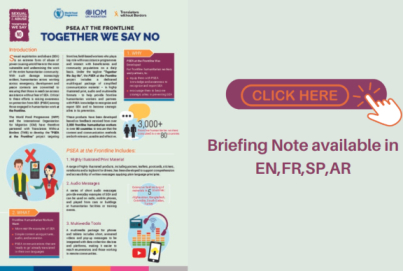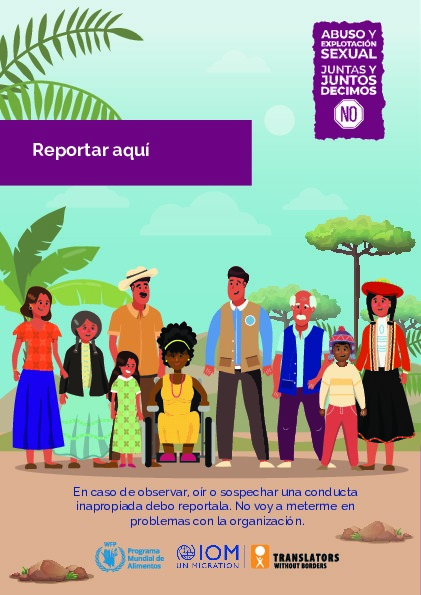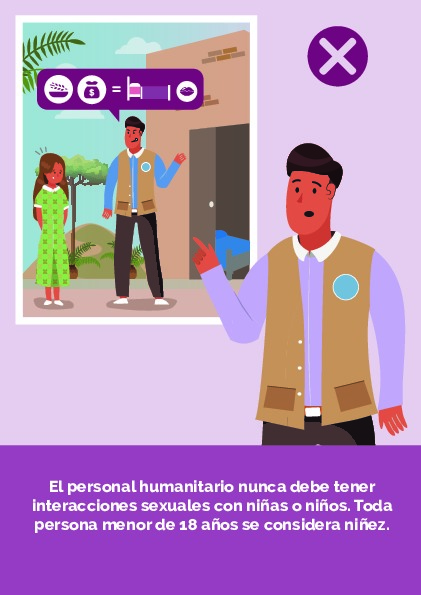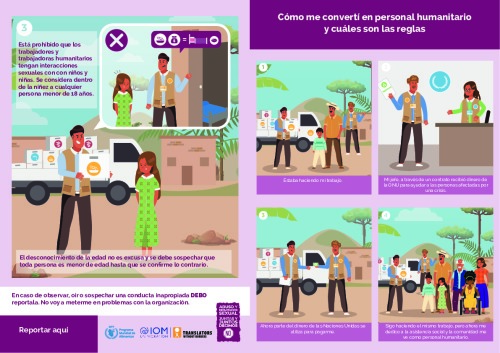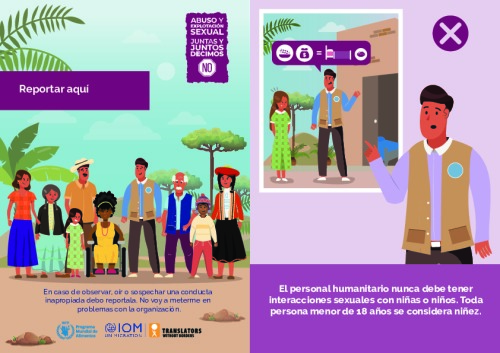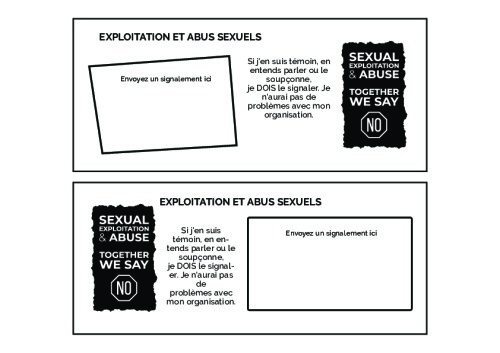PSEA at the Frontline
TOGETHER WE SAY NO
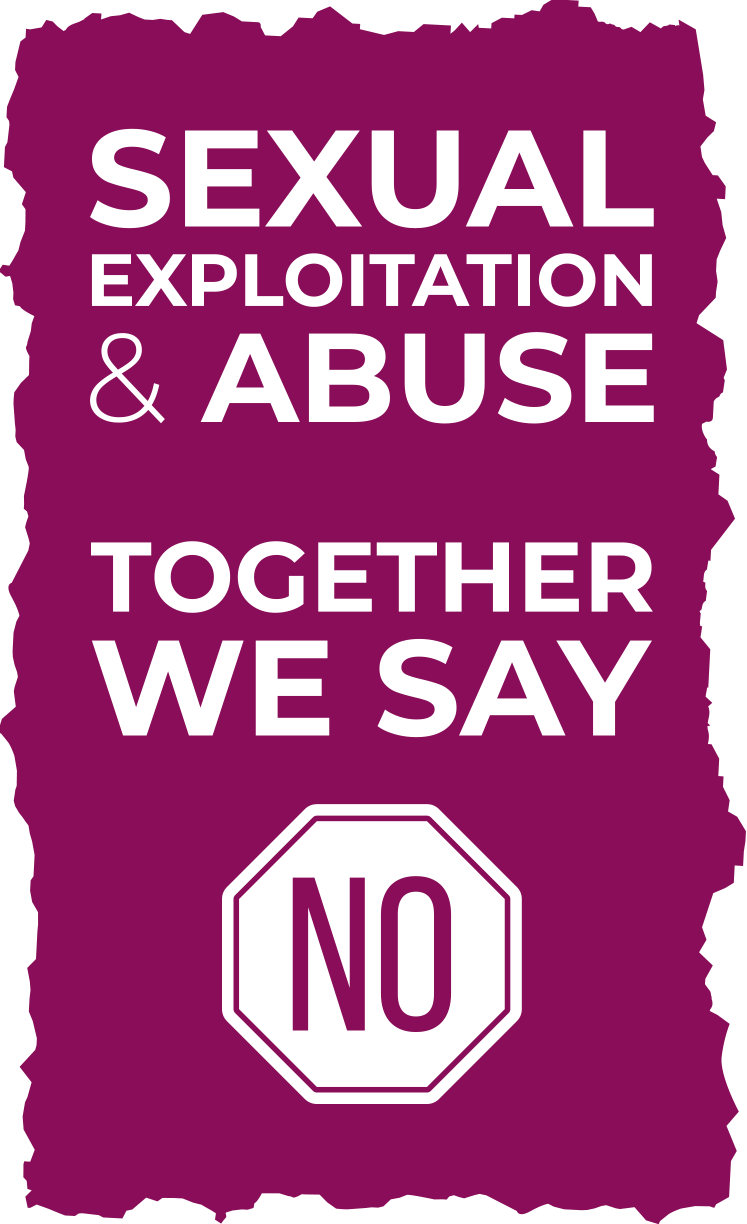
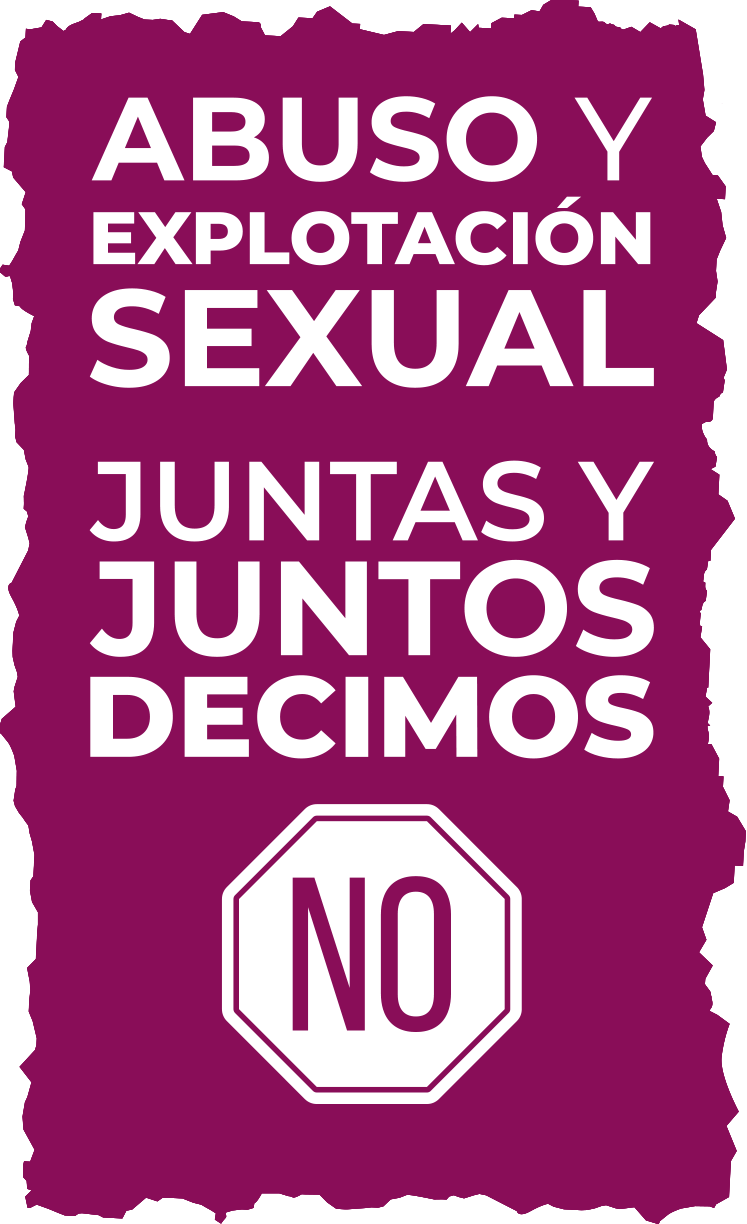
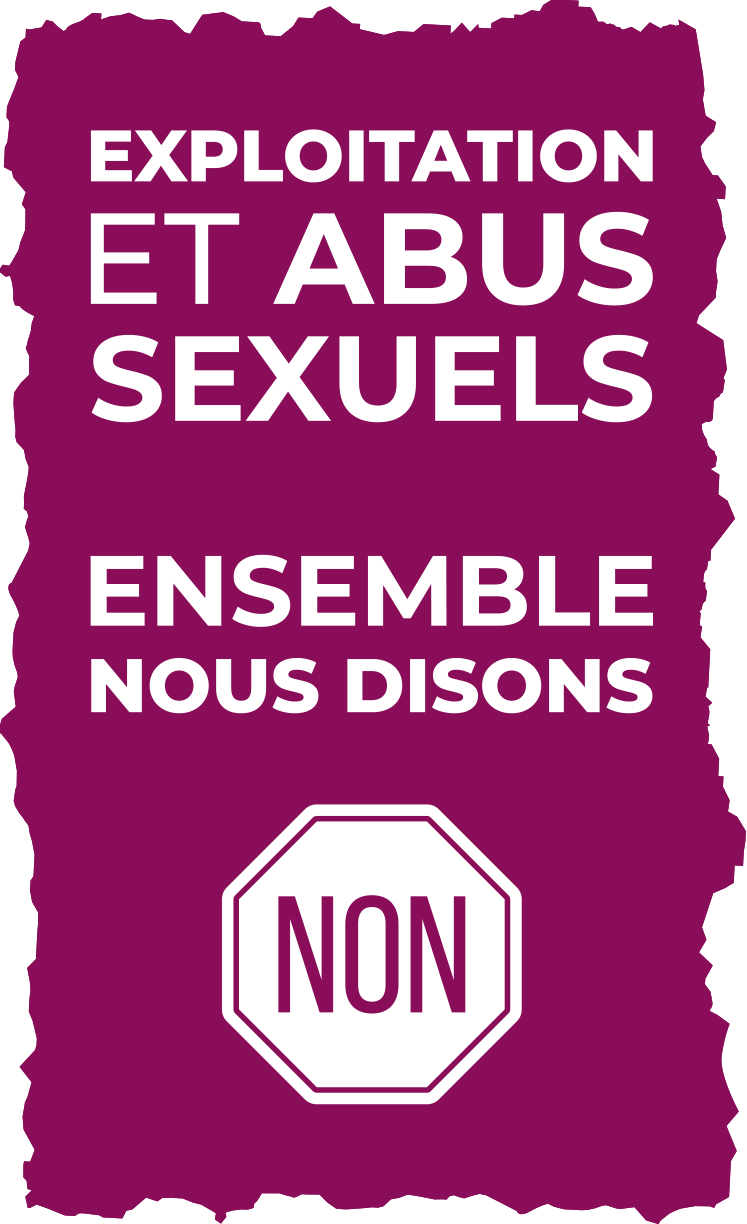
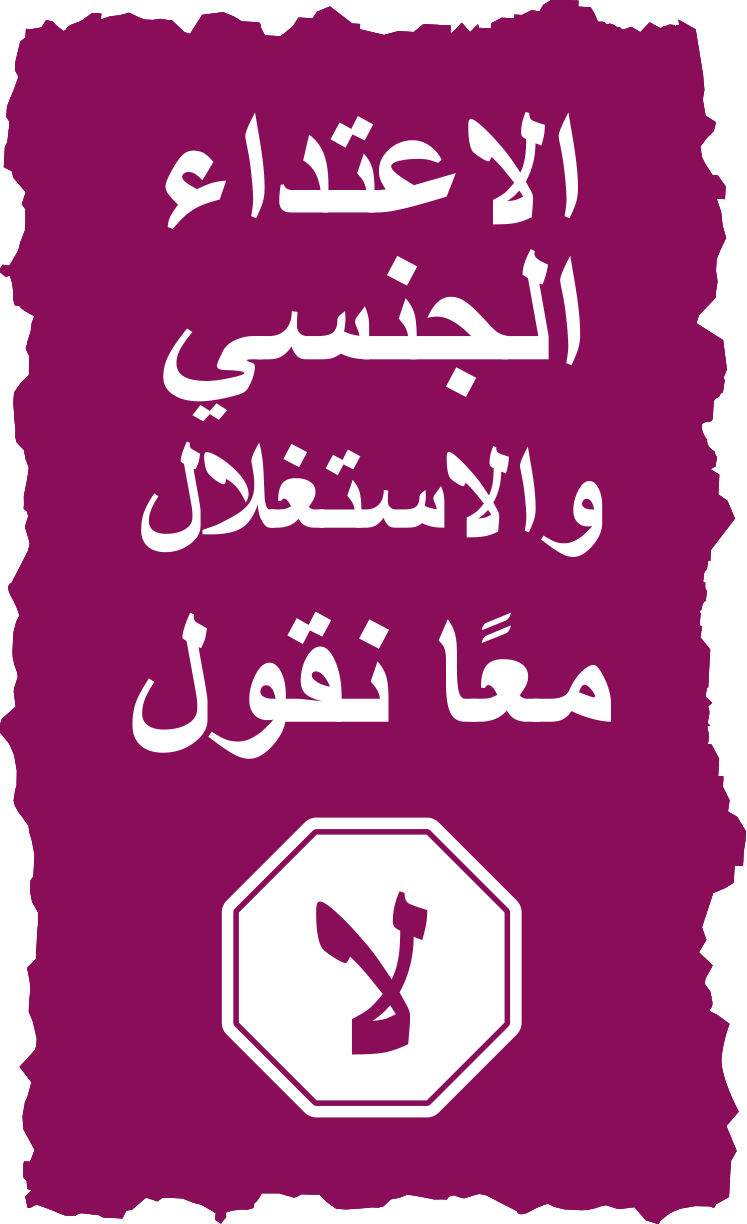
PSEA at the Frontline
The “PSEA at the Frontline” initiative is aimed at providing frontline workers and partners with critical knowledge on protection from sexual exploitation and abuse (PSEA) through a dedicated package of simplified communication material in highly illustrated print, audio and multimedia formats currently available in 22 languages. Briefing Note available in EN, FR, SP and AR.
The initiative, developed by the World Food Programme (WFP) and the International Organization for Migration (IOM) in partnership with Translators without Borders (TWB), targets frontline workers who play a key role within assistance programmes and interact with beneficiaries and community populations on a daily basis, including: Drivers & Security Guards, Enumerators, Translators, Aid Distributors, Financial service providers and other contractors. Under the tagline “Together We Say No”, the initiative aims to help them to identify and report sexual exploitation and abuse (SEA) as well as become strategic allies in its prevention.
The materials were developed based on feedback received from over 3000 frontline humanitarian workers in over 80 countries. Extensive field testing of the materials was also carried out in five countries: Afghanistan, Bangladesh, Colombia, South Sudan, and Turkey.
All communication materials are available to IASC members and PSEA stakeholders for their use.
Guidance on How to Use the Resources
Organisations interested in developing PSEA knowledge and awareness among frontline workers and partners can browse the communication materials below. The materials are organised by language and by resource type:
Languages
Amharic, Arabic, Bahasa, Bambara, Bangla, Dari, DRC Swahili, English, French, Fulfulde, Haitian Creole, Hausa, Juba Arabic, Lingala, Myanmar language, Nepalese, Pashto, Portuguese, Spanish, Swahili, Tigrinya, Turkish
Type of Resource

- Highly illustrated print materials
- Audio messages
- Multimedia tools
A select set of tools have also been adapted for the Ukraine response and are available in Ukrainian, Polish, Romanian, Russian and Slovak.
For guidance on how to use these materials, please see the How To Guide (EN,FR,SP,AR).
Adaptation/Translation of Materials
Adaptation
The communication materials are available in final formats, however, organisations are welcome to add their own name/logo on the print materials. Additionally, organisations are requested to add relevant local contact details for reporting mechanisms in the space provided. These adaptations can be made by way of stickers or inclusion of a text box in the PDF documents.
Translation
For support in translating the materials into a language not currently available, please contact: wfp.psea@wfp.org or PSEA-SH@iom.int
Launch Events

We look forward to featuring your organization’s launch events - feel free to share photographs and relevant information with us via the contact information below.
A PSEA at the Frontline visibility package, including logos, banners, bags, stickers and more, has been designed and is available for use in your language to support launch events and roll-out of the communication materials.
Filters
Displaying 43 - 48 of 1360
Eager to learn more?
For more information on PSEA at the Frontline, please contact
wfp.psea@wfp.org | PSEA-SH@iom.int
The project materials were adapted from products developed by the Rooftop design agency in partnership with Habitat for Humanity International, Oxfam International and WaterAid, and made possible in part through the support of InterAction. We would like to thank them for the inspiration and access to these resources.
